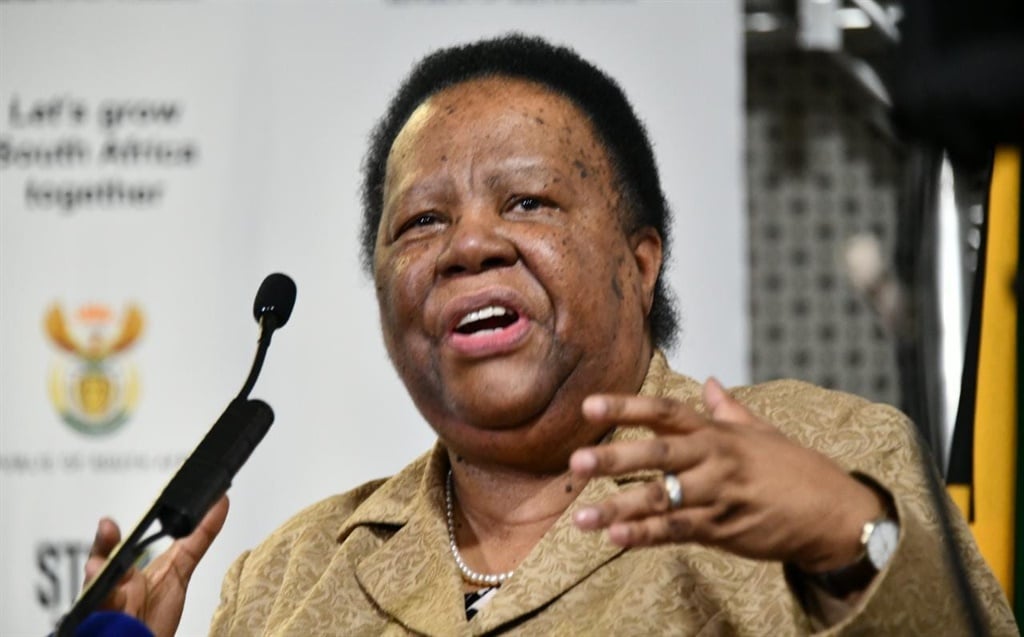
- South Africa says that US President Donald Trump's recognition of Morocco's right over the Western Sahara has no force and effect.
- Western Sahara has welcomed South Africa's support.
- Morocco wants the US to open a consulate in Dakhla to focus on economic ties.
Outgoing US President Donald Trump's recognition of Western Sahara as part of Morocco was "totally surprising" and "doesn't have force and effect", International Relations (Dirco) Minister Naledi Pandor said on Monday.
"It's essentially the recognition of an illegality," Pandor told journalists at a hybrid briefing on South Africa's international relations during the past year. She said various United Nations resolutions have confirmed that Western Sahara has been occupied by Morocco, "... and the effect of something said by the United States of America doesn't change the legal position of the UN resolution".
She said South Africa would "... continue to indicate that we believe the United States is wrong in its assertion and it doesn't go along with the multilateral bodies and global recognition of the position of occupation and therefore it is something that we find totally surprising and has no force and effect".
Trump, in a tweet last week, said he had signed a proclamation recognising Moroccan sovereignty over Western Sahara, in exchange for Morocco agreeing to establish full diplomatic ties with Israel. The US became the only major power in the world to hold this position about Morocco.
Today, I signed a proclamation recognizing Moroccan sovereignty over the Western Sahara. Morocco's serious, credible, and realistic autonomy proposal is the ONLY basis for a just and lasting solution for enduring peace and prosperity!
— Donald J. Trump (@realDonaldTrump) December 10, 2020
Morocco occupied Western Sahara in 1975 and left the Organisation of African Unity in 1984 after the Democratic Arab Republic joined as a member. Morocco was accepted as a member of the African Union (AU) in 2017. Thirty-eight nations, including South Africa, recognise the Sahrawi Democratic Arab Republic and have diplomatic relations with it.
Against
Pandor said the US recognition of Morocco, "... goes against international law and the African Union's Constitutive Act", and could fuel hostilities between Morocco and the Sahrawi. "Silencing the guns in these situations requires dealing with the root causes of conflicts which invariably includes governance deficits, human rights abuses and contestation over resources," she said.
The AU at a summit earllier this month, hosted by South Africa as this year's chair, agreed that the role of foreign interests in conflicts on the continent needs greater attention, she said.
Sahrawi ambassador to South Africa, Mohammed Beissat, welcomed South Africa's support:
Beissat added that self-determination was an American value and expressed confidence that president-elect Joe Biden would reverse Trump's proclamation.
On the other hand, Moroccan ambassador to South Africa, Youssef Amrani, welcomed Trump's proclamation and requested that countries friendly to Morocco support it. He said the US should open a consulate in Dakhla, which is in Western Sahara, for economic purposes.
Positions
He also said King Mohammed VI had reaffirmed Morocco's, "... commitment and positions for peace and stability in the Middle East with Palestine and Israel living side by side".
The US decision comes amidst rising tensions between Morocco and the Western Sahara's Polisario Front. A 29-year-old ceasefire was ended last month after Polisario accused Morocco of launching a military operation in a buffer zone, but Morocco said it acted because Polisario was stopping people and goods from passing through.
Morocco has become the fourth Arab nation since August - after the United Arab Emirates, Bahrain and Sudan - to normalise relations with Israel as part of a US-brokered deal.
In her briefing on Monday Pandor also said South Africa was concerned about conflicts in Libya, the Sahel, Cabo Delgado in Mozambique, South Sudan, and the east of the Democratic Republic of Congo. She did not mention the Tigray region of Ethiopia, where President Cyril Ramaphosa's mediation efforts on behalf of the AU were rebuffed by Prime Minister Abiy Ahmed.
